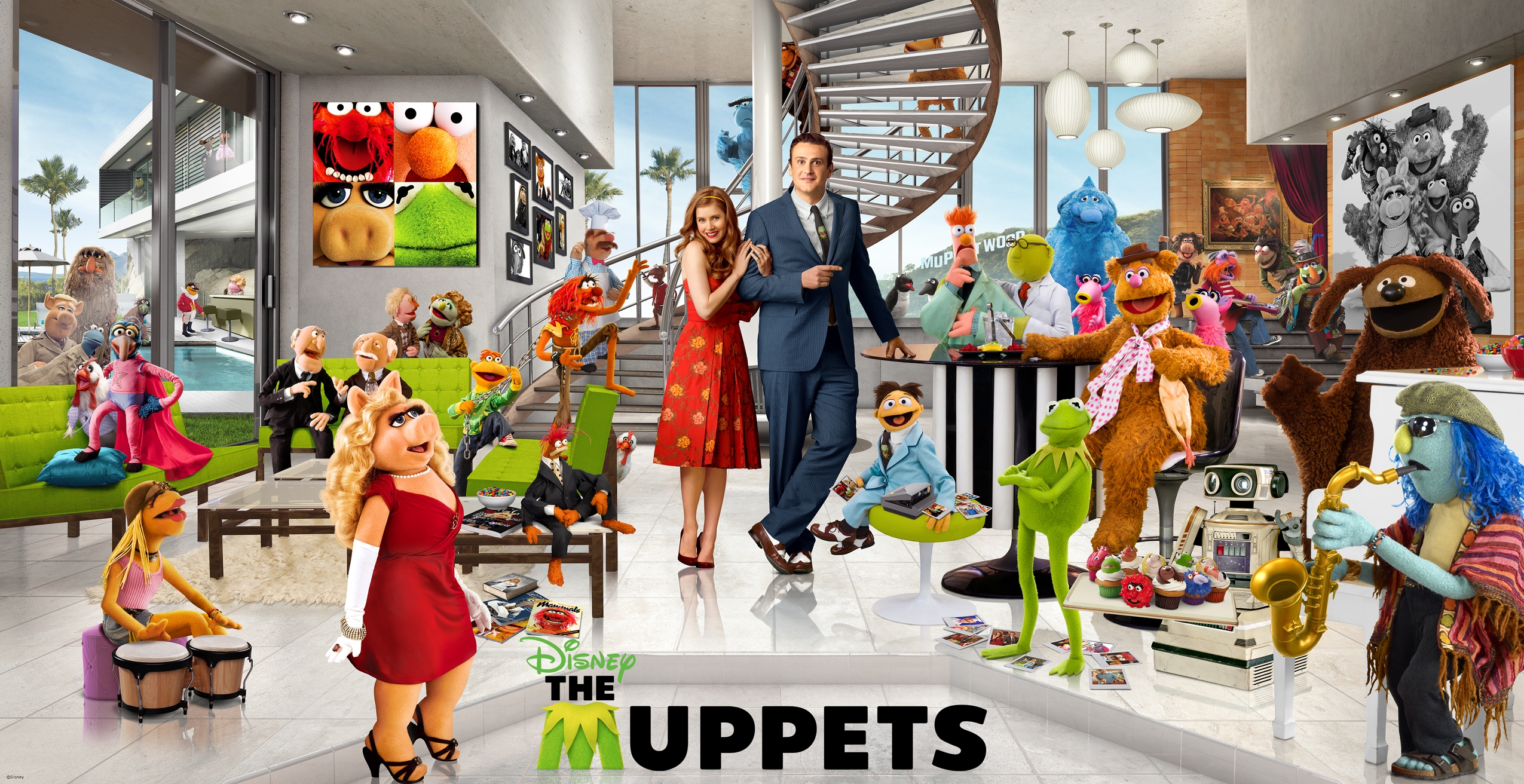This guest review by Jarrah Hodge previously appeared at her blog Gender Focus.
Luckily, the film was just as awesome as I had hoped. The Muppets tells the story of Walter, a Muppet with a human brother Gary (Jason Segel). As they grow older, obsessed Walter, who’s become a big fan of The Muppet Show starts to realize he doesn’t fit in in their small town. When Gary decides to take his girlfriend Mary (Amy Adams) on a trip to Los Angeles, he brings Walter along knowing he’d like to see Muppet Studios.
When they arrive in LA, Walter overhears a plot by the evil oil tycoon Tex Richman (Chris Cooper), who wants to raze the studio and drill for oil. Walter’s only hope to save the studio is to re-unite the estranged Muppet Show cast members for one final fundraising performance.
The Muppets was hilarious with just the right amount of Muppet cheese, and the way its storyline evoked nostalgia for The Muppet Show struck a chord with those of us who grew up watching it and the early Muppet movies.
Unfortunately, the movie seemed to struggle a bit with how much independence to give its women characters. While Miss Piggy continues to use both karate chops and more traditionally feminine wiles to get her way, and Mary repairs cars and electrical circuits without breaking a sweat, the two have the same ultimate goal: marriage.
One of my biggest issues with these two having the same motivation is that they both only have One motivation and goal. All the other (male) characters have more than one goal and motivation throughout the movie. Walter wants to save the theater, reunite the Muppets, and find his place. Gary wants to be with Mary, and he wants his brother to be happy but struggles with maybe having to let go of him. Kermit wants to save the theater, be with the family that is the Muppets and re-kindle his relationship with Miss Piggy. Even Animal has two goals: wanting to save the theater AND to control his wild side.
Avital at Bitch Magazine Blogs took a slightly more positive view, saying:
Fight it all you want, but Miss Piggy is a feminist. While she does play into some poor stereotypes (being a little boy-focused…or rather frog-focused), the thing most folks remember her for is her fierce, take-no-shit, strong personality.
Overall I think the movie didn’t stray too much into gender-regressive territory. At one point Mary and Piggy even sing a girl-power independence song: “Me Party/Party for One”:
Even though Piggy/Mary’s goals are centered around marriage, the movie does show that they’re independent and unwilling to put up with bad treatment from boyfriends. With all of the movie’s other awesomeness, that makes it a big success in my books.
—–
Jarrah Hodge blogs from New Westminster, BC. Jarrah graduated from the University of British Columbia with a B.A. in Women’s Studies and Sociology. In addition to running Gender Focus, Jarrah is currently a guest blogger on feminism and nerd culture for Bitch Magazine Blogs. She writes a column on gender issues for theVancouver Observer and is a regular blog contributor to About-Face. She’s a fan of politics, crafts, boardgames, musical theatre, and brunch.


I did love the movie a whole lot, but I was definitely a little troubled by the gender roles. Compare Mary and Piggy’s duet with Gary and Walter’s: “Me Party” is all about rejecting the men we all know they will ultimately get back together with; “Man or Muppet” is about the struggle to figure out one’s identity. Utterly symptomatic of the roles Hollywood offers women and men respectively – women characters always define themselves around the men characters; men characters get to have identities of their own.